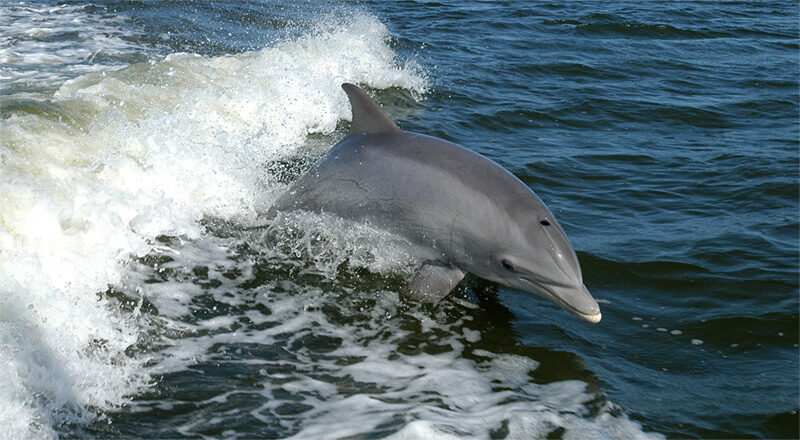
Study Spotlight #4: Discovery of new endocannabinoid pentadecanoylcarnitine (PDC)
Like humans, dolphins have a fully developed and complex endocannabinoid system (ECS) containing the same classical CB1 and CB2 receptor sites, their corresponding endocannabinoids, as well as those extending into the larger endocannabinoidome (the larger internal environment that interacts with the ECS) such as signaling involving serotonin receptor sites (i.e., 5-HT1A and 5-HT1B). In this experiment (2022), a team of San Diego-based marine mammal researchers fed bottlenose dolphins a fatty acid, i.e., pentadecanoic acid, aka (C15:0). Resulting bloodwork revealed that C15:0 was converted into a novel endocannabinoid entitled pentadecanoylcarnitine (PDC). It turns out that naturally occurring PDC had a dose-dependent effect that resulted in lower insulin and cholesterol in the test animals, potentially benefiting patients challenged by metabolic syndrome, obesity, and diabetes. In addition, data also revealed that PDC showed significant anti-proliferative effects in cases of blood-based cancers, anti-inflammatory activities with relevance to inflammation in general (e.g., in wound healing) and specifically to inflammation in tissues of the lungs (e.g., COPD, fibrosis), skin (e.g., dermatitis, psoriasis), as well as those associated with cardiovascular diseases.
Venn-Watson S, Reiner J, Jensen ED. Pentadecanoylcarnitine is a newly discovered endocannabinoid with pleiotropic activities relevant to supporting physical and mental health. Sci Rep. 2022;12(1):13717. Published 2022 Aug 23. doi:10.1038/s41598-022-18266-w

